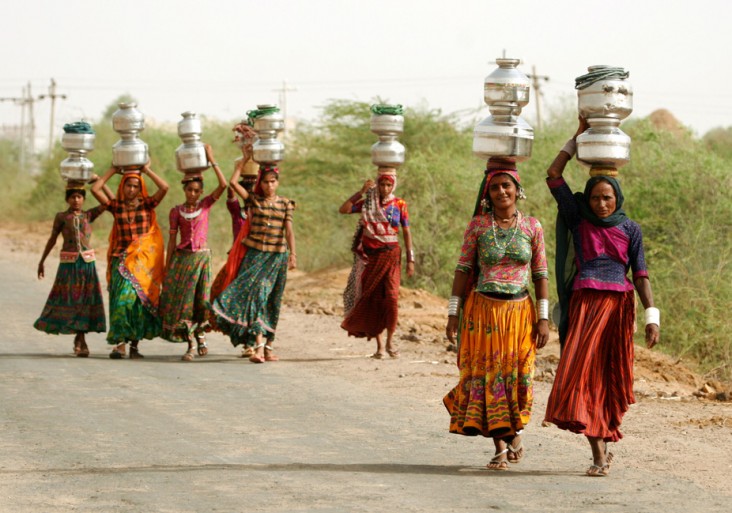Sharing Strengths: World Unites for a Water-Secure Future

Bedouins travel miles on camelback in search of it. Farmers plan their year around it. Children spend hours fetching it. Millions die because of unsafe supplies of it. Water is essential for all of us. But too often, this shared need creates divisions instead of fostering cooperation.
In recognition of the importance of working together, the United Nations declared 2013 the International Year of Water Cooperation. Water cooperation is accordingly the theme of World Water Day on March 22. It was cooperation between donors, civil society organizations, the private sector, governments, and individuals that enabled the global community to meet the Millennium Development Goal to reduce by 50 percent the number of people without access to safe drinking water in 2010, five years ahead of schedule. Indeed, cooperation enables donor agencies including USAID to meet a wide range of water-related development goals such as increasing agricultural productivity, boosting child health, improving the environment, empowering communities, and fostering peace and coexistence.
While water cooperation has a long history, recent technological innovations have enabled more people to engage in the challenges around water quantity and quality. Since the growth of global media, millions can now see and understand the hardships facing people across the world. Social media has launched thousands of dialogues around water issues, and methods like crowdsourcing have enabled even those with limited means to make a difference.
USAID’s Every Child Deserves a 5th Birthday campaign is testament to the power of these innovations to connect people for change. This campaign brings together corporations, governments, nongovernmental organizations, faith groups, and donor organizations to work together to decrease child mortality from preventable causes, including water-borne diseases and diarrhea. The initiative has engaged scores of people around the world through social media. Thousands of men and women—celebrities, public figures, and concerned citizens from almost every country—have tweeted messages of hope, declared their support on Facebook, and uploaded photos of their 5th birthday to raise awareness of these important issues.
In April 2012, USAID joined the Sanitation and Water for All Partnership (SWA), which promotes global water and sanitation goals through cooperation. The Partnership brings together rich and poor countries along with donors, civil society, and governments to foster universal access to sustainable drinking water and sanitation. SWA works to enable governments and donors to help those most in need. USAID Administrator Rajiv Shah said that this cooperative approach was key and that, “Working together, we can not only reach full coverage, but we can also do it in the most effective, efficient, and collaborative way.”
Cooperation is a key element to fostering peace and coexistence. USAID/Afghanistan’s Pastoral Engagement, Adaptation, & Capacity Enhancement (PEACE) Project has trained hundreds of Afghan tribal leaders to mitigate conflicts between pastoralists over issues including water resources. By working together, these pastoralists have improved their income and quality of life. In the Philippines, USAID helped former militants become fish farmers through its “Arms for Farms” program, thus enhancing peace in the region. And in the Middle East, with USAID facilitation, Israelis and Palestinians are working together to treat wastewater, promote water conservation, and engage in dialogue.
As populations grow and water resources dwindle, the need for water cooperation will increase. But through cooperation between presidents and pastoralists and farmers and faith leaders, millions around the world can meet these challenges together.
More Information







Comment
Make a general inquiry or suggest an improvement.